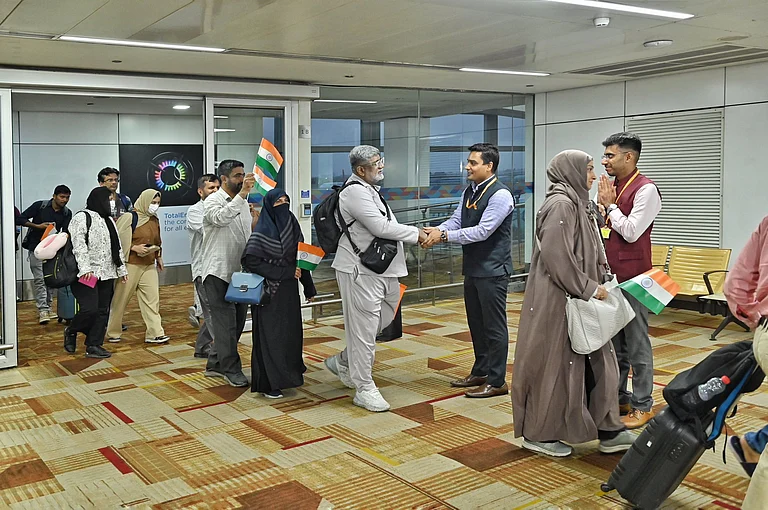In a dramatic escalation, Iran launched missile strikes targeting US military bases in Qatar and Iraq late Monday night, firing ten missiles at the Al Udeid base in Qatar and one at a US facility in Iraq.
Iran Attacks US Bases: The Countdown Begins
This can either have the sobering effect of getting the international community to scramble for a diplomatic solution, or another long-drawn war to add to the existing list is on the cards.
All missiles were reportedly intercepted, with no casualties or damage confirmed so far. Tehran described the strikes as a proportionate response, pointing to the recent U.S. assault on its nuclear facilities, and saying that they had used the same number of bombs that the US had used this weekend.
Moreover, soon after the Iranian action, Axios, a US news portal, posted on X, quoting unidentified official sources in the Trump Administration as saying, "Iran coordinated its attack on Al Udeid Air Base with Qatar, and the Trump administration was aware of the threat in advance."
Going by this report, Iran was signalling more of a political message than a military offensive. Weakened militarily, with its top commanders dead and missile stockpiles dwindling, Iran appears to be walking a tightrope-responding firmly to save face domestically, yet possibly signalling an opening for diplomacy.
With tensions teetering on the edge, the coming days may decide whether Iran can continue its strike or get back to the negotiating table.
More important is what will be US President Donald Trump’s response? Will Trump give a crushing answer to Iran, as he had warned earlier? Or, will Iran’s advance warning make a difference and perhaps help to diffuse a potentially dangerous escalation that could engulf the entire region in a quagmire with unforeseen consequences?
John Kerry, a former US secretary of state in the Obama administration, who was part of the 2015 nuclear agreement, hoped that Donald Trump would understand the circumstances under which the decision to attack the US bases was taken, and get back to the negotiating table.
"There is no military solution to this,’’ Kerry told CNN’s Christian Amanpour. He said the sooner all sides in the conflict realised this, the better for the world.
It is certain that the Iranian regime, if it survives, however weak and emasculated its defences are, would sooner or later get back to rebuilding its nuclear program.
Nobody is certain if the US heavy bombing had destroyed the enrichment facility in Fordow or the Natanz and Isfahan plants. Iran had reported that, anticipating an attack, the enriched uranium from Fordow had already been removed and taken elsewhere.
So far, the extent of damage to the three facilities is not definitely known. If the regime decides to walk out of the Nuclear Non-Proliferation Treaty (NPT), as it has threatened to do, then the inspections of the facilities would stop. No one would know exactly what Iran is up to if nuclear inspection is no longer allowed.
This is perhaps why Israel, and now Trump, is hinting at regime change in Iran. Ayatollah Ali Khamenei can be killed, but whoever takes his place would not give up the regime's nuclear ambition. To avoid these unforeseen circumstances, Israel and the US are now veering round to considering bringing in a pro-Western government to replace the regime. ends.

